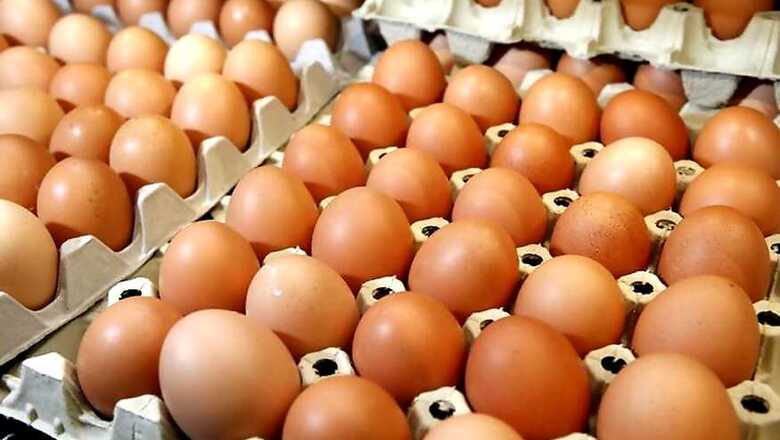
views
Brussels: Dutch investigators arrested two suspects on Thursday in an intensified European investigation into insecticide-tainted eggs, as the scandal spread eastwards with the discovery of a tonne of contaminated yolk in Romania.
The spiralling scandal that has seen eggs taken off the shelves across Europe also reached Luxembourg, while Britain said it had imported 700,000 eggs from Dutch farms linked to fears over fipronil contamination, far more than first thought.
Fipronil is commonly used to get rid of fleas, lice and ticks from animals but is banned by the EU from use in the food industry. It can harm people's kidneys, liver and thyroid glands.
With questions growing about how the contamination happened and whether consumers have been kept in the dark, pressure has grown on the two countries at the centre of the scandal - the Netherlands and Belgium.
In joint raids with Belgium, Dutch prosecutors said they had arrested "two managers at the company that allegedly used the substance at poultry farms," with Dutch media naming the suspects' company as Chickfriend.
Farmers in the Netherlands -- one of Europe's biggest egg exporters -- and Belgium have previously identified Chickfriend as the company that they hired to treat their chickens to eradicate the parasite red lice.
The Dutch authorities said the raids also also focused on a Belgian supplier of fipronil, named in the media as Poultry-Vision, and another Dutch company that colluded with it, which was not identified.
"They are suspected of putting public health in danger by supplying and using fipronil in pens containing egg-laying chickens," prosecutors' spokeswoman Marieke van der Molen said.
Belgian investigators meanwhile identified 26 people or companies as suspects during the 11 raids by police and food safety agency officers, for offences including fraud and breaking EU food laws.
Investigators seized paperwork, cars, banking details and fixed assets in both countries. They said they had also seized 6,000 litres of "prohibited products" in Belgium.
The joint offensive came despite Belgium earlier accusing the Netherlands of knowing about the problem of fipronil in eggs since November 2016, but failing to inform them until July.
The Netherlands denied the charge.
In Romania -- the country identified in media reports as where Belgium's Poultry-Vision bought its supply of fipronil -- one tonne of egg yolk liquid contaminated with the insecticide was found.
The liquid was imported from Germany and found in a warehouse in western Romania, in the first discovery of its kind in eastern Europe, the Romanian veterinary health authority ANSVSA said, adding that none of it has been put on the market.
Meanwhile British authorities said that around 7,00,000 eggs from Dutch farms implicated in the scandal had been distributed in Britain, just days after saying the number was only 21,000.
As a result, four major British supermarket chains have withdrawn some products containing eggs, including sandwiches and salads, the Food Standards Agency said.
Luxembourg said eggs sold in branches of the discount supermarket Aldi had been withdrawn, with one batch containing so much fipronil it was unsafe to be eaten by young children.
Tests also found fipronil in eggs sold in Luxembourg supermarket chain Cactus, which had originally come from the Netherlands, while two Luxembourg suppliers of prepared meals, Caterman and Carnesa, said they had received cartons of liquid eggs from a contaminated source in Belgium.
The eggs at the centre of the scandal have mainly come from the Netherlands, followed by Belgium and Germany. Scores of farms have been shut.
Sweden, Switzerland, Britain, France and Luxembourg have also now announced that they have found contaminated eggs. The problem is believed to stem from a substance used by Dutch company Chickfriend which farmers in the Netherlands and Belgium say they hired to treat their chickens.
A lawyer for Poultry-Vision has said the firm sold it to Chickfriend but has not said where it got the substance. The French government says a Belgian company -- which it did not identify -- mixed fipronil with another, lawful, substance.



















Comments
0 comment